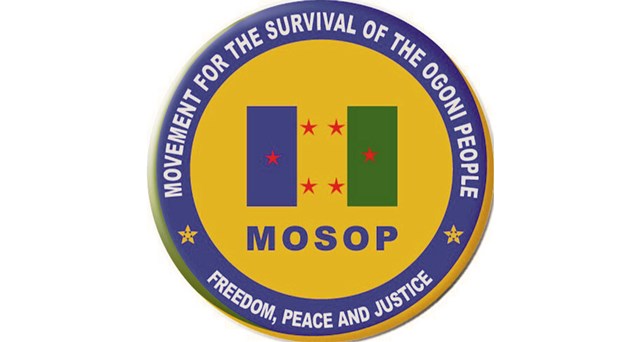Maritime
CRFFN Commissions Enforcement Officers
The Council for Regulation of Freight Forwarding in Nigeria
(CRFFN) on Monday commissioned the first batch of its enforcement officers.
The officers are to enforce the provisions of the council’s
Act No 16 of 2007.
Mr Mike Jukwe, the Registrar of CRFFN, who disclosed this at
the passing out ceremony in Lagos, said that 23 enforcement officers were
commissioned.
Jukwe said that the CRFFN had, in 2010, advertised for the
registration, verification and accreditation of freight forwarders from which
it registered 1,435 individuals, 405 corporate bodies and accredited two
associations.
He said that the training for the 23 officers started on
Aug. 22, 2012.
“Although the course was limited in scope, it is the
beginning of the series of intensive training programmes lined up for
enforcement officers of the council whose primary aim is to enforce the
provisions of the law enabling the council,’’ Jukwe said.
He said that during the period of training, the officers
received both practical and theoretical training on basic and rudimentary foot
drills as well as physical education.
The Registrar said that the officers were also enlightened
on their functions as enforcement officers to arrest and investigate.
According to him, the CRFFN Act No 16 of 2007 spells out all
about enforcement, self defence mechanism, among others.
“The Directorate of Registration and Enforcement attached
great importance to this beginners’ course by employing the respected
principles of the Special Investigation Bureau of the Nigerian Army,’’ Jukwe
said.
He said that the course took into cognisance the peculiarity
of the terrain of the ports.
Jukwe said that only registered and inducted freight
forwarders as well as accredited associations of freight forwarders would be
allowed to practise henceforth, while offenders would be prosecuted.
He recalled that the Attorney General of Federation and
Minister of Justice inaugurated the Freight Forwarders investigative panel and
Freight Forwarders Disciplinary Tribunal on April 30, 2011.
Mr Danjuma Dauda, a member of CRFFN Governing Council who
represented the Federal Ministry of Transport, said that in spite of the
teething problems, the council was able to deliver on its mandate.
“I thank ports stakeholders, who have over the years stood
firmly behind the council, the Nigerian Shippers Council and the NIMASA for
making useful contributions to the council,’’ Dauda said.
Mr Kunle Folarin, the Chairman of Ports Consultative Council
(PCC), said that freight forwarders were the most important segment of freight
forwarding business in Nigeria.
“They are the most important practitioners in the maritime
industry. Freight Forwarders are the custodian of cargo interest in Nigeria.
“Without the cargo, there would be no shipping and without
shipping there will be no port. Freight forwarders are very important in the
shipping chain.
“Ever since, ship owners curry the favour of the freight
forwarders because without the forwarders giving them the cargo, the ship owners
will fold up,’’ Folarin said.
He said that his council would give the CRFFN maximum
support.
Maritime
Waterways Safety: NIWA Wants Partnership With Govs

The Managing Director of National Inland Waterways Authority (NIWA), Mr. Bola Oyebamiji, has called for increased collaboration between the federal agency and state governments to enhance the safety and security of inland waterways transportation.
Speaking at a one-day consultative forum on safety and insecurities on inland waterways, organized by the Nigeria Transportation Commissioners’ Forum in Ilorin, Oyebamiji emphasized the critical role that safety and security play in fostering a thriving water transportation system.
The forum, themed “Prevalent Safety, Security Hazards and Practices in Inland Waterways: Passenger Transport Safety in Ilorin, Kwara State”, sought to address the pressing issues facing the inland waterways sector.
Oyebamiji acknowledged the ongoing efforts by NIWA to improve safety, such as the recent unveiling of the transportation code for public use, the inauguration of several operational assets including survey boats, gunboats, water ambulances, and a passenger ferry.
He also noted that safety campaigns have been launched across all operational bases, targeting local communities in their native languages.
The NIWA boss stated the support from the National Assembly, including the ongoing discussions on establishing coastal guards and the attention safety and security on inland waterways have received from the House Committee on Inland Waterways.
In his closing remarks, Oyebamiji appealed to the Commissioners for Transportation across relevant states to collaborate with NIWA in areas such as training, safety campaigns, infrastructure development, and financial empowerment.
He stressed that while the challenges are significant, they are surmountable through collective action.
Maritime
Coastal Guard Bill’ll Unlock Marine Blue Economy Potential -FG

The Federal Government has conveyed its support for the establishment of the National Coast Guard.
The Government also commended the proponents of the bill for having the hindsight to initiate a course of action that, when passed, will be the catalyst needed in unlocking the nation’s maritime potential.
In a statement by the Head of Press, and Public Relations for the ministry, Muhammad Tahir Zakari, Minister of Marine and Blue Economy, Adegboyega Oyetola, was reported to have made this known at the National Assembly complex at the 1-Day Public Hearing on National Coast Guard Bill (NCG).
The statement stated that the bill when passed, will guarantee maritime safety, sustainable marine resource development and enhance economic growth.
Highlighting the major need for the National Coast Guard, the Minister identified: Maritime safety; Environmental protection through enforcing environmental regulations and conservation of marine ecosystems; and Enforcement of civil maritime laws to uphold laws governing civil maritime activities and enforce fishing regulations while preventing illegal exploitation.
It also include search and rescue to maritime emergencies and also conduct timely search and rescue operations.
He cited a 2009 publication by the African Centre for Strategic Studies, which noted that 15 of the 21 independent maritime nations in sub-Saharan Africa have dedicated coast guards and identify themselves as such.
Despite this, none of these nations have Nigeria’s population or the extent of its inland waterways and coastline.
While acknowledging the significant role of the Nigerian Navy in safeguarding the Nigerian maritime space following the collaborative effort with the Ministry of Marine and Blue Economy in the Deep Blue Project, which has shown great results with zero piracy in Nigeria’s territorial water in the last three years.
He, however, stressed the need for the National Coast Guard to complement the efforts of the Nigerian Navy in playing a critical role in preventing accidents, crime, and other threats to maritime activities
“A vast coastline of 850 km, the equivalent of 10,000 km in two ways. It is also a place of rich and diverse economic sources.
“While these opportunities are promising, they also present challenges such as pollution, overfishing, and unsustainable use of marine resources. The proposed National Coast Guard is equipped to tackle these issues”, he stated.
He urged the Senate and the National Assembly to lend their full support to the bill, noting that, “Nigeria Coast Guard will act as a vital complement to the Navy, of fostering a safe and sustainable maritime environment”.
He appealed for the establishment of a flexible, adaptive implementation strategy that would evolve into a midwife for the bill to succeed, while urging those with reservations to see the pressing need of the institution.
Earlier during the hearing, the President of the Nigerian Senate, Godswill Akpabio, commended members of the Committee on Marine and Transport for their unwavering dedication in piloting the initiative and advocating for the establishment of the National Coast Guard Bill.
Akpabio, represented by Sen. Akintunde Yunus, said the essence of the bill was to make critical decisions that will guarantee the safety of the nation’s waterways and protect the marine resources.
He stated that “the establishment of the National Coast Guard is not merely a legislative formality, but a dire necessity”.
Speaking also, the Chairman, Senate Committee on Marine and Transport, Sen. Sanni Eshinlokun, said the Bill was first read in the Senate on the 3rd of October while the Senate at its plenary deliberated on the General Principles of the Bill.
Senator Eshinlokun said, “The Bill was read for the second time and referred to the Senate Committee on Marine Transport for further legislative action.
Maritime
Private Sector Should Drive Blue Economy -Bello

Former Executive Secretary of the Nigerian Shippers’ Council (NSC), Barr. Hassan Bello, has charged the Federal Government not to designate any of its agencies as the lead agency to drive the blue economy if it actually wants Nigeria to make progress in the sector.
Bello, who made this call in his remarks at the 10th anniversary, lecture and awards of the Primetime Reporters in Lagos, midweek, advised the Federal Government to avoid the mistake made during the Cabotage era when it designated an agency as lead agency and the rest was now history.
He said for the sector to succeed, it required everyone’s contribution, urging the Minister to allow the private sector to drive the blue economy.
According to him, “Two things which we must be very careful about is to make.mistake, like we did with cabotage. If we remember carefully, Cabotage was coastal and Inland shipping, but that inland shipping was not emphasized.
“It was just for supply of oil and gas to the mother vessel, we couldn’t trade as we were doing from Asaba to Baro in Niger State, or carry cement or even petroleum products. So, we cannot restrict that to customs.
“Secondly, don’t give the Blue Economy to an agency to say it is the lead agency because everybody must have contributions to the Blue Economy. As we want to do, we have seen agencies struggling to have seminars on Blue Economy, it’s not even a government thing.
“Allow the private sector to take over this blue economy, don’t create fantastic departments and overload into the private sector. This is what is our problem.
“When we had the Cabotage, it was a NIMASA thing and when you talk about Cabotage, no! don’t go there, what is your own with Cabotage? So, Cabotage was colonized, the Blue Economy should not be colonized. We should have the ramification of that Blue Economy to make sure that everything trickles down”.
He however, noted that there had been a lot of progress by the various organs of government even before the designation of the Blue Economy Ministry saying, “Blue Economy has always been there just as we had the red economy, which is characterized by China’s quest for export for state directed economy.
“We even have the grey economy, which is that which is informal. We have the green economy and all shades of economy. So, it’s not new that we have the Blue Economy, what has been the call by stakeholders is for us to have a ministry that will cater for transportation and transportation is a cardinal or even the paramount part of the Blue Economy.
“I know we have sustainable use of ocean resources and many other things, but when you talk about the Blue Economy, the central point is the use of ocean and the inland waterways and other resources for diversification of our economy as the Convener has said”.
“We have to be conscious, concerted and even calculated to make sure that it works for us. It’s not just fancy thing that there’s a ministry for blue economy. There must be active participation of stakeholders and the involvement of the private sector to harness the resources and not anything fancy or pretentious. The government must involve the private sector.
By: Stories by Nkpemenyie Mcdominic, Lagos
-

 News9 hours ago
News9 hours agoMinimum wage’ll be reviewed in less than 2 yrs, says Minister
-
Sports3 hours ago
Golfers To Converge For Sun Amateur Tourney In PH
-
Niger Delta8 hours ago
Eno Urges Unity, Warns Against Politics Of Division In 2025
-
Business8 hours ago
No Mandate To Revive National Carrier – Aviation Ministry
-

 News9 hours ago
News9 hours agoOgoni Day: MOSOP Unites, Demands Share from OML 11
-

 Politics3 hours ago
Politics3 hours agoAPP Wants INEC To Conduct By-Election To Fill Rivers Assembly Vacant Seats
-
Niger Delta8 hours ago
We’re Upgrading Tourism Sites Across C’River – Otu
-

 Niger Delta8 hours ago
Niger Delta8 hours agoKalabari Media Forum Hails Recognition Of Dokubo Asari As Amayanabo

